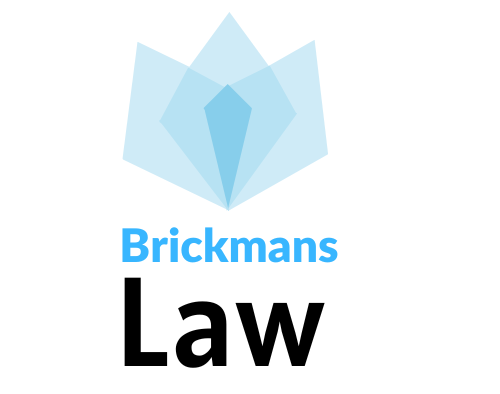Admissibility of E-signatures in Nigeria- Limits, Burdens and Opportunity
ADMISSIBILITY OF E-SIGNATURES IN NIGERIA: LIMITS, BURDENS AND OPPORTUNITY.
Understanding what electronic signature means.
As a result of the influence of technology within the economic and business climate, how business transactions operate has significantly evolved, the main advantage being the ease in the methods of doing business occasioned by this intervention. A typical example of technological interference is conducting transactions virtually; negotiating, drafting and the traditional method of signing documents are all gradually being taken over by technological innovations. The increase in the use of electronic and digital signatures against wet signatures has significantly increased over the last five years with the report indicating that the global digital signature market will go from USD1.10 Billion in 2019 to a projected 7.99 billion in 2027. This indicates how rapidly companies are becoming reliant on electronic and digital signatures to conduct their affairs. It is important then, to explain what an electronic signature is under technological and legal parlance.
Article 2 of the UNCITRAL Model Law on Electronic Signatures 2001 defines an Electronic Signature to mean; “data in electronic form in, affixed to or logically associated with, a data message, which may be used to identify the signatory in relation to the data message and to indicate the signatory’s approval of the information contained in the data message.” An electronic signature in simple terms is the electronically generated version of your handwritten/wet signature. An electronic signature functions in the same way a wet-signature would, it is usually to indicate approval/consent of the content of a document. Various technological applications facilitate e-signature some of which include: Adobe sign, One span, DocuSign etc. these applications employ different methods of signing. E-signatory is typically done by inscribing your signature on the document via a touch screen tab, but may also involve, collecting initials/full name, generating and entering a designated PIN code or simply clicking a box indicating knowledge and consent of the terms of a document.
While e-signing has significantly reduced the complexities and cost of doing business especially for business partners situate in different continents, a pertinent question to ask is how much does an electronic signature hold sway in the business environment within different countries – more specifically, in Nigeria? Does the law take adequate cognizance of the credibility of an electronically signed document?
E-signature; its admissibility in Nigerian Courts
Under Nigerian law, the use of electronic signatures to execute a document is recognised under section 93(2) of the Evidence Act of 2011 which provides: “Where a rule of evidence requires a signature or provides for certain consequences if the document is not signed, an electronic signature satisfies that rule of law or avoids those consequences.”
Section 93 (3) goes further into how electronically generated evidence may be proved: “All electronic signatures may be proved in any manner, including by showing that a procedure existed by which it is necessary for a person, in order to proceed further with a transaction to have executed a symbol or security procedure for the purpose of verifying that an electronic record is that of the person.”
Since an Electronic signature can only be made on an electronic document, it is important to state also that Section 84(1) provides for the admissibility of “computer-generated evidence” where it provides: In any proceeding, a statement contained in a document produced by a computer shall be admissible as evidence of any fact stated in it of which direct oral evidence would be admissible. if it is shown that the conditions in subsection (2) of this section are satisfied concerning the statement and computer in question.
Further, the bedrock for the admissibility of evidence in Nigerian Courts is the relevance of that evidence[1]. What then constitutes relevance? According to section 6 of the Evidence Act, any fact is relevant which shows or constitutes a motive or preparation for any fact in issue or relevant fact. The interpretation section, section 258 goes further to define what “facts in issue” are: “…any fact from which either by itself or in connection with other facts, the existence, non-existence, nature or extent of any right, liability or disability asserted or denied in any suit or proceeding necessarily follows..” what this means is that a fact in issue is any fact connected with an issue in dispute and needed to prove or disprove that issue or in the alternative, that fact itself is what is in dispute.
Summarily, for a piece of evidence to be admissible, it must be shown that that piece of evidence is either a relevant fact and in issue or is relevant to a fact in issue even though not itself in issue. This has otherwise been tagged by scholars as the “best evidence” rule[2].
Additionally, section 13 of the Evidence Act goes further to state that: When there is a question whether a particular act was done, the existence of any course of business according to which it naturally would have been done is a relevant fact. Suffice to say, that where an electronic signature is what is ordinarily used by a company to signify acceptance of a document/ terms of an agreement, then a document electronically signed by that company which comes up for questioning is bound to be admitted by the courts as being relevant to a fact in issue and thus, admissible.
Conclusively, the Evidence Act in Nigeria is what determines what documents are admissible before a competent court and what is not. Flowing from the provisions of the Act as explained above, a digitally or electronically signed document is admissible in court to be proved, provided that it is not a piece of evidence that its relevancy is so remote to the matter before the court[3] and that the document is consistent with the pleadings filed[4].
LIMITS AND BURDENS
It would seem that e-signatures have become more recognized by courts of competent jurisdiction, especially with the review of the old 2004 Evidence Act to the extant version, and with credence lent by case laws such as Kubor v. Dickson [5] where the Supreme Court recognized electronically generated evidence and acknowledged that it was liable to be admitted before a competent court. However, difficulties still abound. The provisions of section 84(1) & 84(2) tied together with section 258(1) have birthed a plethora of cases [6] questioning whether a document has been properly tendered before the court for it to be declared admissible in evidence. The Court is very specific about the “proper foundation being laid” before an electronic document can be admitted in evidence.
A Close look at the stipulated conditions under Section 84 (1), (2), (4)
Admissibility of electronically generated evidence as stated under section 84(1) are subject to certain conditions being fulfilled, these conditions having been stipulated under section 84(2) as follows:
- that the document containing the statement was produced by the computer during a period over which the computer was used regularly to store or process information for any activities regularly carried on over that period, whether for profit or not by anybody, whether corporate or not, or by any individual;
- that over that period there was regularly supplied to the computer in the ordinary course of those activities information of the kind contained in the statement or of the kind from which the information so contained is derived;
- that throughout the material part of that period the computer was operating properly or, if not, that in any respect in which it was not operating properly or was out of operation during that part of that period was not such as to affect the production of the document or the accuracy of its contents; and
- that the information contained in the statement reproduces is derived from information supplied to the computer in the ordinary course of those activities.
Summarily, the conditions precedent to successfully tendering electronically generated evidence are that:
- Whatever statement sought to be tendered was produced by a computer during regular use;
- During that period of regular use, the information contained in the document/statement was supplied to the computer;
- The computer had been in proper operation during that period of regular use.
- The reproduced statement was obtained from information supplied to the computer during normal use.
Further, Section 84(4) requires that the party which seeks to tender a computer-generated statement or document shall file a certificate:
- identifying the document or statement;
- describing the manner of its production;
- stating the specifications of the device used in the production of the document; and
- the document is to be signed by a person occupying a responsible position concerning the operation of the relevant device or the management of the relevant activities.
Laying the foundation to tender an electronically generated document into evidence is therefore dependent on; establishing the reliability of the computer used in generating the evidence and providing a certificate of authentication of the document signed by a person occupying a responsible position concerning the operation of the device used in obtaining the evidence. The conditions set out in section 84 (2) & (4) of the Evidence Act are so crucial that any evidence that fails to conform to the provisions is rendered inadmissible. This was further emphasized by the Court of Appeal in Akeredolu & Anor. V. Mimiko & ors [7] where the court held as follows: going by the foregoing provision, it is discernable that the appellants who were desirous of demonstrating electrically, the content of Exhibit P50A and P50B failed to lay the necessary foundation regarding the condition of the electronic gadget or computer they were going to use. To the extent that those conditions as spelt out in section 84 were unfulfilled, the demonstration ought not to be allowed.
These conditions being strict, and the law inadequate, does not bode well for a party on certain matters such as: who exactly would constitute a person occupying a responsible position to sign the certificate of authentication? Would it be the officials in a senior management position or any employee regardless of designation? What happens when a party wishes to tender a document belonging to the opposing counsel’s computer and the opposing party is unwilling to issue and sign a certificate of authentication as required under section 82(4) of the Evidence Act? What happens where the Computer used in obtaining the document has been compromised?
It would seem then, that it is at this point that parties encounter a roadblock in the admissibility of their evidence, the courts are strict with these provisions and there is currently no existing judicial precedent that helps ease the burden. Although the case of FRN v. Femi Fani-Kayode [8] exists where the prosecuting counsel sought to tender electronic copies of bank electronic statements to the court, an objection was raised by the defense which the trial court upheld. On Appeal, the prosecution asked that the Court of Appeal review the decision held by the trial court and also asked for a stay of proceedings which was granted. The Court of Appeal in giving its ruling held that the document for all intent and purpose ought to be allowed having regard to the provision of the Evidence Act and how it was tendered should at worst, be a question of the weight to be attached to the evidence once admitted. As hopeful as it may seem, this case does little to the plight of a party seeking to tender electronic evidence because Supreme Court rulings and judgments still exist to the contrary and the Supreme Court being the Apex court, cannot be overruled by a lesser court of jurisdiction. Until this case is further appealed to the Supreme Court and the issue is revisited, upholding the ruling of the Court of Appeal, the tendering of electronically generated evidence including a digital/electronic signature in court suffers numerous burdens.
Therefore, the major hurdle with regards to the admissibility of electronically generated evidence is the method required to tender and prove the contents of a document. Although the Court of Appeal in the Fani-Kayode case seemed willing to take a liberal approach, the body of our Judicial arm of government, in general, remain reliant on the traditional leanings of the Evidence Act which unfortunately is still severely lacking in making adequate considerations for electronic documents as evidence and providing well-suited provisions of law with regards to its admissibility in court.
OPPORTUNITIES; PROPER REGULATORY FRAMEWORK FOR E-SIGNATURE
The legislative and judicial dearth in providing a favourable precedent on the laws and procedures that ought to guide an electronically generated document, specifically, digital, and electronic signatures, leaves room for a proper regulatory framework to be designed. In conceiving and instituting this regulatory framework, international best practices need to serve as the guide to ensure that Nigeria is in line with the model and acceptable framework for digitization of signatures and electronic documents and transactions in general. Recourse can be made to the provisions of the UNCITRAL Model Law on Electronic Commerce, whose main aim is to ensure Member states conform to a uniform and acceptable standard of commercial transaction practice with regards to the area of electronic commerce. Another regulatory framework capable of serving as a guide is the United States’ Electronic Signatures in Global and National Commerce (ESIGN) Act of 2000, which recognizes both digital signatures and electronic signatures as legally binding as handwritten, “wet” signatures in the United States. Also, the UK has its regulation adequately addressing electronic signature in its electronic Identification, Authentication and Trust Services (eIDAS Regulation)
Although the Nigerian legislative system has a long way to go with regards to providing adequate structure and regulation of electronic signature and commerce in Nigeria, it is important to recognise that attempts are currently being made to fill the present lacuna. There exist before the National Assembly, various bills proposed that if passed, would rescue the legal system from obscurity with regards to providing for modern technological interventions.
For instance, the Electronic Transactions Bill of 2019[9] (which hopes to adopt the resolutions of the United Nations Convention on the Use of Electronic Communications in International Contracts, adopted at the 2005 UN Convention). By so doing, the Bill shall give validity to Electronic contracts, signature and records, and the admissibility of electronic evidence including Data Privacy and Security of Parties to online transactions. Section 2(2) of the Bill however makes exceptions; the recognition of electronic signature under the bill does not extend to the following documents; creation or execution of a Will, Power of Attorneys, creation or execution of a will, disposition or conveyance of immovable property.
Further, the recently passed Cybercrimes (Prohibition, Prevention etc.) Act[10] 2015 recognizes the use of electronic signatures and regards them as binding.
To Sign or Not to Sign? The Electronic Dilemma
E-commerce has been enjoying increasing popularity for close to a decade now but unfortunately, Nigeria still struggles critically with evidential and authentication issues. There is also not a wide acceptance of the use of electronic signatures to sign certain documents such as creation and execution of wills, codicils, and other testamentary documents, death, marriage, divorce, and adoption certificates. Although most regulatory bodies have adopted e-filing systems, they still require that signature impression be made physically and a scanned copy uploaded. Some regulatory bodies like the Corporate Affairs Commission in Nigeria have recently updated their website to indicate acceptance of electronic signatures as well as, issuance of electronically generated certificates of incorporation. Until when a uniform and comprehensive regulatory framework for electronic signature is established, Companies in Nigeria or conducting business in Nigeria are advised to maintain the traditional method of signing all electronic documents physically, as it is currently the safest method.
For now, we can only remain hopeful that Nigeria will take a cue from robust laws and regulation such as the eIDAS to effectively tackle the gap that exists in both regulation and litigation with regards to electronic commercial transactions practices.
[1] see section 1 of the Evidence Act juxtaposed with section 2 of the Evidence Act 2011.
[2] See also Subramanian v Public Prosecutor [1956] WLR 965, 969., Abubakar v. Chuks (2008) 152 LRCN 1, 17,
[3] Section 1(a) Evidence Act 2011
[4] Civil Procedure Laws of Nigeria
[5] (2013) 4 NWLR (pt 1345) 534
[6] Anyeabosi v RT Briscoe [1987] 3 NWLR 84,
Lufthansa v William Ballnyne (2012).
(4) (2014) 4 NWLR Pt 1345, Continental v R Shipping [2013] 4 NWLR (Pt 1343) 6., Yusuf v. ACB (1976) 4 SC 1., Omisore v. Aregbesola (2015) 15 NWLR (pt. 1482) 205
[7] (2013) LPELR 20532
[8] (2010) 14 NWLR (Pt 1214) 48
[9] Awaiting assent
[10] Section 17



